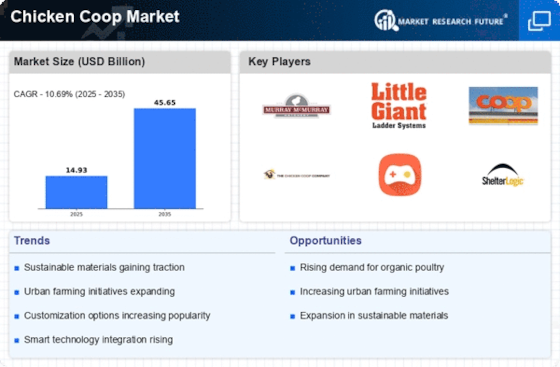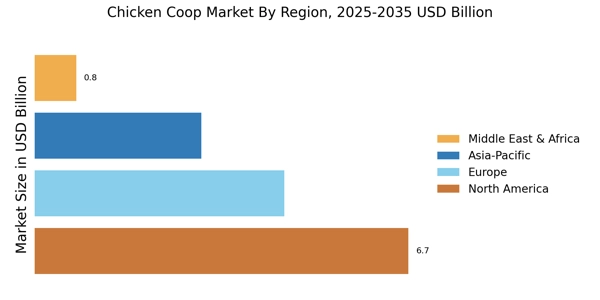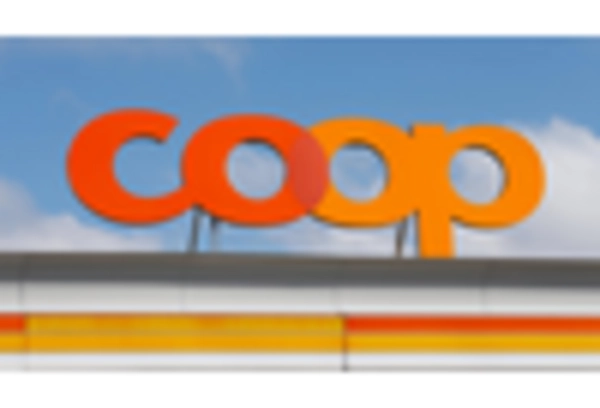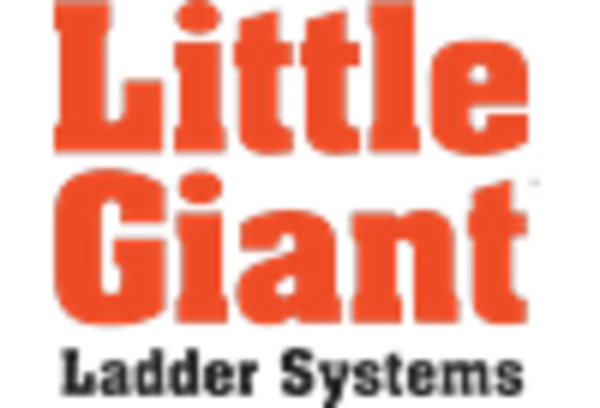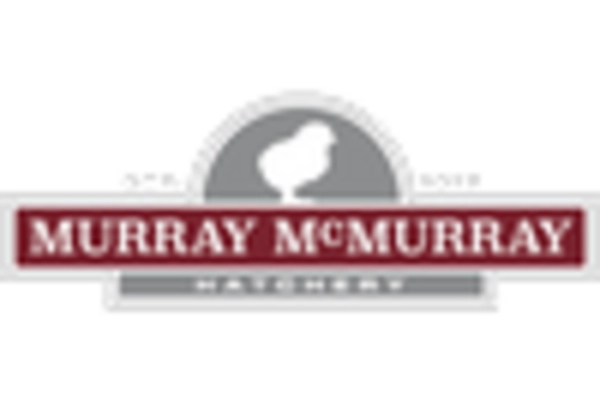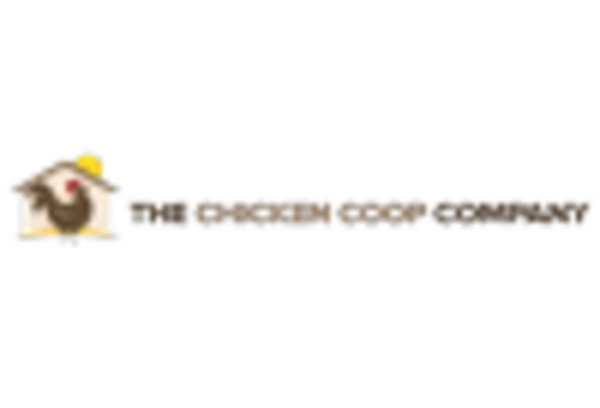Urban Farming Initiatives
The chicken coop Market is significantly influenced by the rise of urban farming initiatives, which encourage city dwellers to engage in local food production. As urban populations grow, the need for sustainable food sources becomes increasingly pressing. Many municipalities are now promoting backyard chicken keeping as a viable solution to enhance food security and reduce carbon footprints. This shift is evident in the increasing number of urban dwellers investing in chicken coops, often designed to fit smaller spaces while still providing adequate living conditions for the birds. Reports indicate that urban farming can reduce food transportation costs and emissions, further bolstering the Chicken Coop Market as more individuals embrace this lifestyle.
Innovations in Coop Design
The Chicken Coop Market is witnessing a surge in innovations related to coop design, driven by advancements in materials and technology. Modern chicken coops are increasingly being designed with features that enhance the comfort and safety of the birds, such as improved ventilation, predator-proofing, and easy access for cleaning. These innovations not only cater to the welfare of the chickens but also appeal to consumers looking for aesthetically pleasing and functional structures. Market data indicates that coops with integrated technology, such as automated feeding and watering systems, are gaining popularity among tech-savvy poultry enthusiasts. This trend suggests that the Chicken Coop Market is evolving to meet the demands of a more discerning customer base, leading to a diversification of products available in the market.
Rising Demand for Organic Eggs
The Chicken Coop Market is experiencing a notable increase in demand for organic eggs, driven by consumer preferences for healthier and more sustainable food options. As awareness of the benefits of organic farming grows, more individuals are inclined to raise their own chickens for egg production. This trend is reflected in the rising sales of chicken coops designed specifically for organic egg production, which are often equipped with features that promote the well-being of the birds. According to recent data, the organic egg market has seen a growth rate of approximately 10% annually, indicating a robust interest in home poultry farming. Consequently, the Chicken Coop Market is likely to expand as more consumers seek to establish their own backyard flocks to meet this demand.
Educational Programs on Poultry Care
The Chicken Coop Market benefits from the proliferation of educational programs focused on poultry care and sustainable farming practices. These initiatives, often organized by agricultural extension services and local farming organizations, aim to equip potential chicken owners with the knowledge necessary to successfully raise chickens. As more people become interested in poultry farming, the demand for chicken coops that cater to various educational needs is likely to rise. Data suggests that regions with active educational outreach see a higher adoption rate of backyard chicken keeping, which in turn stimulates growth in the Chicken Coop Market. This trend indicates a shift towards informed consumerism, where individuals are more likely to invest in quality coops that support the health and productivity of their flocks.
Sustainability and Eco-Friendly Practices
The Chicken Coop Market is increasingly aligned with sustainability and eco-friendly practices, as consumers become more conscious of their environmental impact. Many individuals are now seeking chicken coops made from sustainable materials and designed to minimize waste. This shift is reflected in the growing popularity of coops that incorporate features such as rainwater collection systems and composting areas for chicken waste. Data indicates that the market for eco-friendly chicken coops is expanding, with a significant portion of consumers willing to pay a premium for products that align with their values. As sustainability becomes a central theme in consumer decision-making, the Chicken Coop Market is likely to see continued growth, driven by the demand for environmentally responsible poultry farming solutions.


